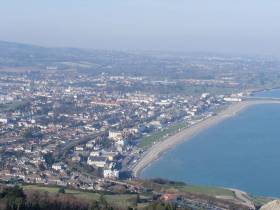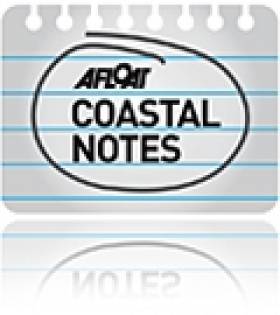Displaying items by tag: Landfill
Hazardous Waste Polluting Coast At Former Bray Landfill Site
#Pollution - An old landfill site in Bray continues to leak hazardous waste into the Irish Sea, according to TheJournal.ie.
Broken asbestos tiles and potassium deposits are among the pollutants leaching into the water due to coastal erosion at the former landfill — an issue highlighted recently by Ireland South MEP Liadh Ní Riada, who also noted similar sites in Waterford, Cork and elsewhere.
Afloat.ie previously reported on the disused rubbish tip north of the Co Wicklow seaside town two years ago, citing Coastwatch’s claim that the problem has existed for more than two decades as 200m of the site has been exposed to weathering and wave action.
Commenting on the issue in the Dáil, Environment Minister Denis Naughten said it was a matter for the local authorities concerned, and that an Environmental Risk Assessment was advised over a year ago.
TheJournal.ie has more on the story HERE.
Coastal News: Connemara 'Disappearing', Landfill Erodes Into Irish Sea, Plastic Pollutes Oceans
#CoastalNotes - Is Connemara at risk of disappearing into the sea? According to one geologist, that's a distinct possibility.
As the Irish Mirror reports, Jonathon Wilkins noticed that the tide was flooding channels in a peat bog near NUI Galway – a tell-tale sign of 'post-glacial rebound'.
That's the process of the land recovering from the weight of glaciers during the Ice Age, and in most cases it means the level of the earth is rising, such as northern parts of the island of Ireland.
But Connemara is one of those that's dropping, and slowing slipping below sea level as the seawater effectively dissolves the bogs and granite bedrock.
Wales-based geological expert Wilkins described what he saw as "very powerful evidence that sea level, to my surprise, is rising in this area, and demonstrably over quite a short time scale."
Disappearing even faster into the sea is an old landfill site in Bray – and it's raised the ire of environmentalists.
According to the Belfast Telegraph, the disused rubbish tip north of the Co Wicklow seaside town continues to lose some of its 200,000 tonnes of refuse into the Irish Sea due to coastal erosion.
And that's despite the problem being identified more than 20 years ago, according to Coastwatch – which says some 200 metres of the face of the landfill site has been exposed by weathering, littering the cliffs below.
The pollution only adds to the 8.8 millions tonnes of plastic that's dumped into the world's oceans every year, according to the journal Science.
The Irish Times reports on these latest findings, which show that one third of this plastic waste is produced by China alone.






























































